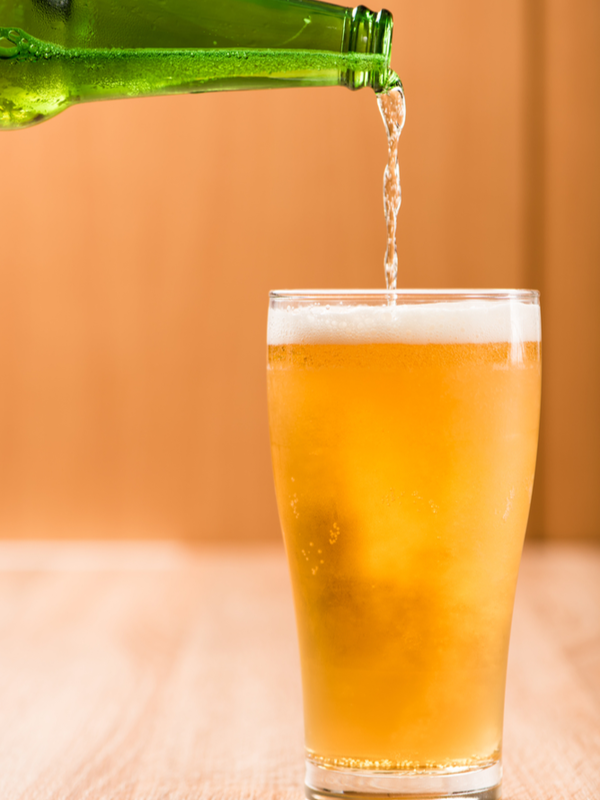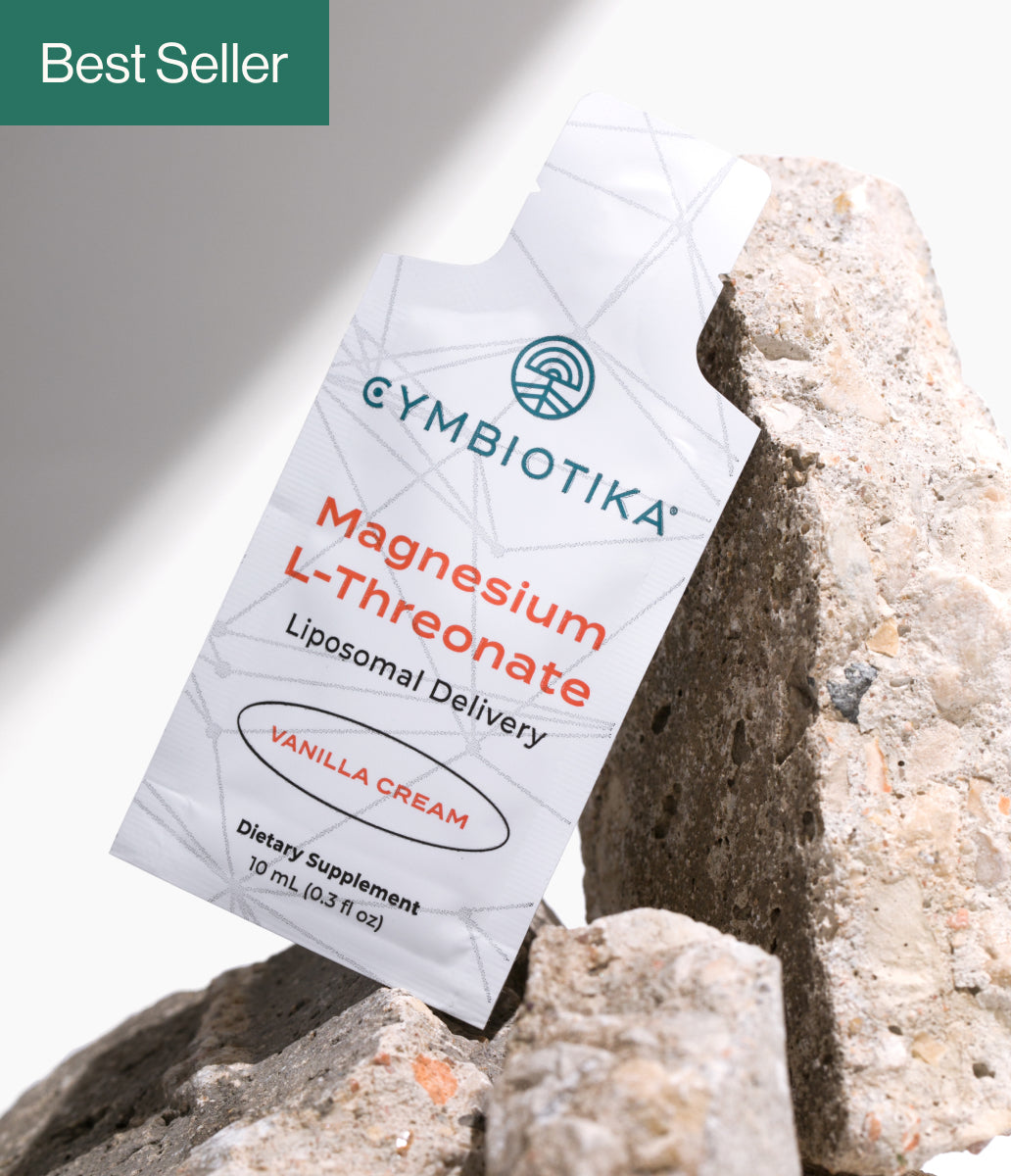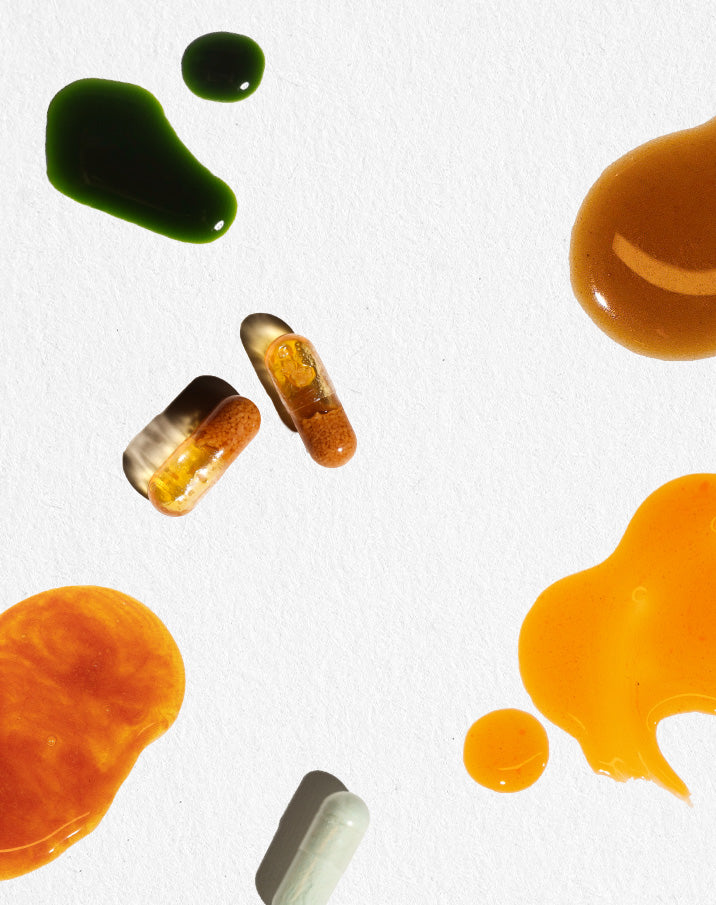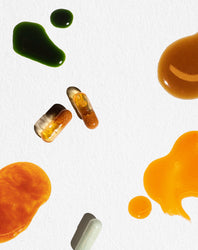
Most of us know that drinking alcohol has negative impacts on our health. Along with cancer and heart disease, the CDC identifies liver disease as one of the main consequences of excessive alcohol use.1
Your liver is one of the most important organs in your body, performing over 500 vital functions. Keeping it functioning at 100% is key to your overall health.
Read on to learn exactly what alcohol does to your liver, how to help prevent further damage, and which supplements can help cleanse and support this powerhouse organ.
What Does Your Liver Do?
Many of us don’t quite know what our liver does. This is partly because your liver doesn’t simply have one job unlike your heart or stomach. Your liver is a vital part of these body systems:2
- Digestive
- Immune
- Circulatory
- Excretory
In particular, the liver plays a role in maintaining appropriate levels of chemicals in the bloodstream. The compounds manufactured, converted, and regulated by the liver then play a role in other bodily processes.
Some of the major functions include:
- Producing bile (necessary for fat digestion)
- Converting ammonia to urea
- Regulating amino acid levels
- Converting excess glucose to glycogen
- Removing bacteria from the bloodstream
- Removing toxins, drugs, and poisons from the bloodstream
It’s this final job that concerns us here.
Alcohol is an intoxicant—literally, a toxin that humans ingest to experience effects like relaxation and euphoria. Given that your liver is tasked with removing toxins like alcohol from your bloodstream, it’s not surprising that excessive drinking can cause damage by pushing this organ to operate on overdrive.
How Does Your Liver Process Alcohol?
So what does alcohol do to your liver? The process starts with what your liver does to alcohol. The most common way your body metabolizes alcohol involves two enzymes made by the liver:3
- Alcohol dehydrogenase (ADH)
- Aldehyde dehydrogenase (ALDH)
These enzymes convert alcohol molecules into compounds that your body can get rid of naturally.
- ADH converts alcohol into acetaldehyde.
- ALDH converts acetaldehyde into acetate.
- Acetate is broken down into carbon dioxide and water.
- Carbon dioxide is exhaled, and water is excreted.
While your liver has a natural and straightforward system for breaking down and clearing out alcohol, the process can take a toll on the organ itself and the body as a whole.
If you’ve ever experienced a hangover, you know firsthand that some of the above compounds can have less-than-pleasant effects.
Acetaldehyde
Much research on alcohol metabolism focuses on acetaldehyde, which is known to be toxic.
Acetaldehyde is usually a short-lived intermediate compound. Its quick transformation into acetate helps mitigate its potential harm. However, since most of this enzymatic breakdown happens in your liver, it bears the brunt of acetaldehyde’s negative effects.
Liver Disease 101
The link between excessive alcohol use and liver disease is well-established. The damage your liver experiences from liver disease can range from easily treatable to life-threatening.
Liver disease has many causes.4 Alcohol is one of the most common, but others include:
- Viruses
- Poor diet or obesity
- Medication side effects
- Environmental toxins (such as cleaning products or industrial pollution)
- Autoimmune diseases
- Genetics
These factors can build off each other to produce an even greater risk. Some of these causes, like genetics or environmental toxins, are difficult to avoid.
In contrast, limiting alcohol intake is an effective, controllable way to reduce your risk of liver damage.
Symptoms of Liver Disease
Liver disease does not always have visible symptoms.
That being said, these are some common symptoms of liver damage:
- Yellowish skin and eyes (jaundice)
- Pain and swelling in the abdomen
- Easily bruised skin
- Loss of appetite
- Nausea or vomiting
- Itchy skin
- Swelling of the legs and ankles
- Dark urine
- Pale stool
If you don’t have these symptoms, you may assume that your liver is healthy—but that’s not always the case.
In fact, any of the above signs indicate that liver damage is already serious. That’s why it’s so important to incorporate liver health into your overall lifestyle.
Stages of Liver Disease
Wondering what are some signs your liver is detoxing or what happens if you consume excess alcohol and damage your liver? The different stages of liver disease are distinguished by the level of damage.5 At the mild end, this damage is completely reversible. However, a severely damaged liver will never return to normal.
Regardless of what caused the damage, liver disease follows a similar progression:
- Fatty liver disease
- Hepatitis
- Fibrosis
- Cirrhosis
Stage 1: Fatty Liver Disease
Fatty liver disease is just what it sounds like—the buildup of fat in liver tissues.
This can occur after a short period of heavy alcohol consumption and is reversible.
Stage 2: Hepatitis
Most of us are familiar with viral hepatitis like hepatitis A, B, or C, but excessive alcohol use or any of the causes mentioned above can cause it too.
Hepatitis is inflammation of the liver.
Inflammation is the body’s way of healing itself. Here’s how it works in a normally functioning liver (or any part of your body):
- Damaged cells and immune cells send out hormones.
- Repair cells receive these hormones and travel to the site of damage.
- Repair cells release collagen, a structural protein that stiffens the tissue, protecting the damaged cells and allowing them to heal.
- When the cells are healed, the extra collagen goes away.
Problems occur when hepatitis is induced too often, causing a constant state of inflammation. This is when your body’s normal inflammatory response truly becomes a disease. Check out our latest blog on how long it takes for your liver to heal to learn more.
Stage 3: Fibrosis
Fibrosis is the second stage of liver disease in which the constant state of hepatitis causes the development of scar tissue.
Collagen is continually deposited and doesn’t go away after the normal cells are healed. Scar tissue in the liver is made up of these dense patches of collagen and other proteins. It inhibits normal liver function by:
- Replacing healthy liver cells
- Restricting blood flow
Note: many people with fibrosis still do not have symptoms.
Some people who develop fibrosis never progress beyond this stage. But, if left untreated, fibrosis can lead to cirrhosis.
Stage 4: Cirrhosis
Cirrhosis is severe liver scarring that is irreversible. Those who experience liver failure or are diagnosed with liver cancer often show signs of cirrhosis.
Cirrhosis can be categorized in two ways:
- Compensated
- Decompensated
People with compensated cirrhosis may have mild or no symptoms. Although their liver is severely damaged, it still functions.
Decompensated cirrhosis is more serious. Scar tissue restricts the amount of blood passing through the liver. Less blood flow means that the liver cannot carry out its necessary functions as quickly or effectively.
- Toxins stay in the bloodstream.
- Digestion and metabolism are inhibited.
- Immune function is compromised.
Someone with decompensated cirrhosis definitely exhibits the symptoms of liver disease.
How Do I Know If I Have Liver Disease?
Ultimately, a doctor is needed to diagnose you with any stage of liver disease. Confirming your diagnosis may require:
- Blood tests
- Imaging (MRI, CT scan, or ultrasound)
- Liver biopsy (tissue sample)
Can Liver Disease be Treated?
Is liver damage reversible? It depends on:
- Its underlying cause
- Its severity
Next, we’ll explain potential paths for treatment depending on the specifics of the damage.
Underlying Cause
If the liver disease has a clear cause, then eliminating that cause can help reverse your liver damage. Some of these changes come in the form of behavior or lifestyle changes. Others require medication or intensive medical treatment.
Liver disease has many causes,stages, and potential effects on other body parts. Therefore, your doctor is the only one who can provide the best advice for treating your liver disease.
Severity
We’ve already discussed the four stages of liver disease, but what results can you expect by reducing your alcohol consumption and implementing appropriate therapies in consultation with your doctor?
- Fatty liver disease is generally a temporary buildup of fats that your body can handle itself.
- Hepatitis should be reversible in those with normally functioning immune systems.
- Fibrosis can be reversed if it is detected early.
- Cirrhosis by definition cannot be reversed. However, treating the underlying cause of the liver disease is still important to reduce the risk of:
- Further scarring (and perhaps decompensated cirrhosis)
- Liver cancer
- Liver failure
In extreme cases of cirrhosis, a liver transplant may be needed.
Alcohol
Regardless of the cause, your doctor will recommend abstaining from alcohol. If your liver disease is clearly caused by alcohol abuse or consumption, this may be the only treatment or lifestyle change that is needed.
Many transplant centers will place patients who are suffering from alcohol-induced cirrhosis at the bottom of transplant lists if they do not abstain from drinking for six months.6
In the USA, if you or a loved one need help with quitting drinking, call the Substance Abuse and Mental Health Services Administration’s National Helpline (1-800-662-HELP[4357]) or visit their online Behavioral Health Treatment Services Locator.
How to Support a Healthy Liver
Remember, the symptoms of liver disease often don’t appear until the damage is irreversible. Don’t wait until you think there’s a problem to think about liver health.
We have many articles on detoxing at Cymbiotika. Here are some brief recommendations to specifically help out your liver, but be sure to check out our other articles for more tips.
- Abstain from Alcohol – A lot of this article has been devoted to explaining the harm that alcohol can inflict on your liver. Don’t force your liver to filter out toxins it doesn’t have to!
- Avoid Sugary Foods – Have a healthy diet. Your liver helps prepare glucose for long-term storage as glycogen. Reducing the sugar in your diet may help lighten the load on your liver.
- Reduce Trans Fat Intake – One of your liver’s main functions is helping your gut break down fats and process them for your body to use or store. Trans fat is usually found in highly processed and fried foods and should be avoided at all costs.
- Eat Vegetables – The vitamins and minerals contained in foods like beets, arugula, and broccoli help flush out toxins and support liver function.
- Use Supplements – Supplements like Antrodia Mushroom, Phosphatidylcholine (aka PC or Lecithin), Pyrroloquinoline Quinone (aka PQQ), and
Glutathione (aka GSH) can help remove toxins and provide nutrients contained in foods that you cannot or just prefer not to include in your diet.
Helping Out Your Liver with Cymbiotika
Here at Cymbiotika, we have resources and products that can help your liver stay in tip-top shape. Our organic formulations are designed in line with the leading science to help you support your liver health and overall health.
Do you suspect that your liver could use some cleansing support? Wondering how to cleanse your liver from alcohol? Check out our Activated Charcoal. Our Micelle delivery system uses nanotechnology to ensure charcoal and other beneficial compounds survive their journey through your digestive system so your body can put them to use.
Likewise, our Longevity Mushrooms and Liposomal Sulforaphane Matrix support the body in detoxification and overall health.
Your liver health is in your hands. We’re here to help with holistic, science-backed supplements.
Sources:
- Center for Disease Control. Excessive Alcohol Use. https://www.cdc.gov/chronicdisease/resources/publications/factsheets/alcohol.htm
- Johns Hopkins Medicine. Liver: Anatomy and Functions. https://www.hopkinsmedicine.org/health/conditions-and-diseases/liver-anatomy-and-functions
- National Institute on Alcohol Abuse and Alcoholism. Alcohol Metabolism: An Update. https://pubs.niaaa.nih.gov/publications/aa72/aa72.htm
- American Liver Foundation. The Progression of Liver Disease. https://liverfoundation.org/for-patients/about-the-liver/the-progression-of-liver-disease/
- Mayo Clinic. Liver Disease. https://www.mayoclinic.org/diseases-conditions/liver-problems/symptoms-causes/syc-20374502
- Johns Hopkins Medicine. Destigmatizing Liver Transplant for Patients with Alcohol Use Disorder. https://www.hopkinsmedicine.org/news/articles/destigmatizing-liver-transplant-for-patients-with-alcohol-use-disorder






















